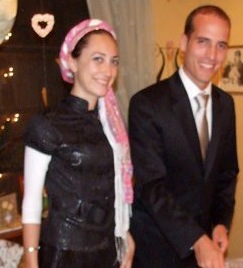
The clothes people wear tell us a lot about them: who they are, their culture, their nationality, and oftentimes, even more!
Clothes define us. They are how we express ourselves, how we label ourselves, for better or for worse. What you wear can communicate any number of things: your level of modesty, your religious observance, your culture, your job. Sometimes your clothes communicate even more about you: you are wealthy, you are sloppy, or you are part of a certain social group.
In travel, clothes are fascinating. They change from place to place. Sometimes they change based on culture, sometimes based on location. You cannot wear the same clothes in Cochin, India that you can up in Siberia. Similarly, there are cultural changes. South India’s tropical climate may be similar to that of the Caribbean, but it doesn’t mean you’ll see the same clothing being worn in both places. Even within one country, different cities can present totally different cultures: in Meah Shearim in Jerusalem, Israel, you will definitely not see the same clothes you’ll find if you stroll down the Tel Aviv beach boardwalk!
So clearly clothes communicate a lot about us. They’re important to us. Many people will agonize over what to wear to an important business meeting – which suit, which tie, which cufflinks? – or to a hot date – which dress, which shoes, which belt? Sometimes our image, conveyed in large part by our clothing, can become too important to us. It can become an instrument of our egos, of our yetzer hara (evil inclination), can fuel our vanity. But even if we are as humble as humble can be, our clothes are still an important part of our communication with others.
So it really shouldn’t come as any surprise to see that so much space in this week’s Torah portion is devoted to describing the priestly garments. They are described down to the finest detail. Every piece is listed and described – how it is to be designed, of what material, and what color thread to use. This is one of the – if not the - most important outfits in the Torah.
In fact, the priestly garments were so important that they could lose their priestly status forever if they appeared as priests without the proper clothing. ”As long as their clothing was upon them, their priesthood was upon them. Their clothing was not upon them − their priesthood was not upon them,” states the Talmud. (Zevarchim 17B).
In our everyday lives, our clothing can actually change our actions. We act differently in a bikini than we would in a business suit. So when it comes to the priests who are going to be offering our sacrifices for us, their outfits are of supreme importance. In some ways, their outfits actual raise them to a new level of spirituality. The priests help us communicate with G-d, they intervene to help us ask for a forgiveness we might not merit on our own… so they need to reach the highest level of spirituality possible.

As Jews, we must always strive to present ourselves as the princes and princesses that we really are: And this means dressing the part! We should always dress with dignity.
When it comes to choosing our clothing, it is important, but we often place its emphasis on a different aspect than it should be. Like the priests described in the Torah, we should wear fine clothes. We should present ourselves as the Jewish princes and princesses we are. That means we should always be ready to present ourselves to the King of kings, and we should be prepared to present ourselves as princes and princesses before all the nations. We have to be dressed appropriately, which means being dressed beautifully.
But it also means being dressed respectfully and modestly. Dressing beautifully does not mean we have to dress to be “sexy.” We can be “attractive” without being “attracting.” Instead of concentrating on how good we make ourselves look from a standpoint of vanity, we should try to make ourselves look good in a way that spiritually elevates us.
This week, as you select your clothes, try to select clothing that you feel spiritually elevates you. What clothes would you choose if you knew the King could see you walking down the street at any time? You wouldn’t be focused on seducing Him – you would be focused on impressing him and gaining his respect. Let your G-dly soul be your guide, rather than your animal soul that simply craves attention. You will see that by changing the way you dress, you will begin to feel and act more like the prince or princess you really are – and that others will treat you accordingly.
Shabbat shalom!
Read More






